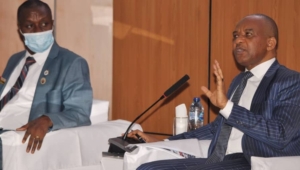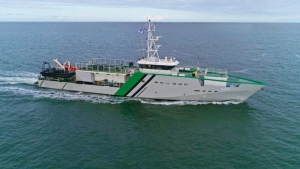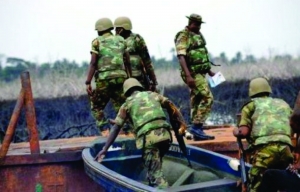Maritime Threats in the Gulf of Guinea – An Update
Background
On 09 May 2023, the Chief of Naval Staff (CNS), Vice Admiral Awwal Gambo, announced that the International Maritime Bureau had removed Nigeria from its list of “War Risk Countries”. The move by the IMB reflects the sustained low levels of piracy and maritime criminal activity reported in the Gulf of Guinea over the last 18 months and follows the cessation of war risk premium payments by Nigeria to Lloyds of London amounting to $793 million per annum. While this is an encouraging step for Nigeria and its neighbours, it does not mean the risks posed by highly organised criminal gangs has disappeared completely.
The discussion around the recent historical low frequency of acts of piracy in the Gulf of Guinea, and of maritime crime in the territorial waters of littoral states in the region, continues to present analysts with the interesting question of what exactly happened to the pirate gangs previously operating in the region? Various bodies have presented credible explanations of why piracy and maritime criminality is at its lowest for several years, but are they accurate? This report examines recent developments in the maritime operating environment in the region and revisits some of the questions posed in previous analyses.
The Baseline
Figures held by Arete analysts indicate that the rates of piracy and maritime crime in the region over the last five years have fallen dramatically since they peaked in 2020. Security events are broken down into those that occurred inside territorial waters, including ports and navigable inland waterways, and those that occur in Exclusive Economic Zones (EEZ) and International Waters. The statistics are summarised in the following table.

Table 1. Spatial distribution of incidents between territorial and international waters
It should be borne in mind that these figures reflect only those incidents that have been reported noting it is generally accepted that maritime crime remains under-reported in the region still.
If we break the figures down into those that occurred in Nigerian Waters and those occurring in other territorial jurisdictions in the region, we see a stark reduction in the levels of activity in Nigerian waters. There has also been a corresponding increase in the number of incidents in other regional waters, however, the overall trend is for a gradual reduction in those waters as well.

Table 2. Spatial distribution of incidents between Nigerian and other nations’ waters
2023 has seen numbers remain very low for the year to date, with just one incident reported in Nigerian waters – a robbery of a berthed vessel in Tin Can Island terminal, and 14 events occurring in other nations’ waters.
Significantly, 2023 has seen two maritime kidnappings, with 6 crewmen taken from a hijacked product tanker (Monjasa Reformer) in March off Pointe Noire, Congo Republic and 3 crewmen taken from a bulk carrier (Grebe Bulker) in Libreville, Gabon. The latter is interesting in that the vessel was boarded and the crew abducted while berthed in the port of Ownedo. In the whole of 2022, there was just one maritime kidnap reported on 13 December, when pirates abducted two crewmen from an offshore support vessel (name withheld) some 48 nautical miles off Bioko, Equatorial Guinea. Additionally, in 2023, a tanker (Success 9) was hijacked more than 300 nautical miles off Abidjan; the vessel and crew were reported safe 5 days later.
These events highlight the latent risk that pervades the region and the fact that despite the frequency of events remaining very low, when incidents do occur, they have the potential to have a very high impact on the crew and the company’s operations.
Lloyd’s list, in a report released in early May 2023 indicated that the global trend was shifting away from deepwater operations by pirate gangs (hijacking and kidnapping of crew members) to a renewed focus on armed robbery against vessels in territorial waters. This global trend seems to also be reflected in the Gulf of Guinea as shown in Table 1 above.
However, the Gulf of Guinea presents a more complex array of actors and threats than can be summarised in such a broad global analysis. The region sees opportunist thieves boarding vessels in ports and anchorages hoping to steal something they can then sell. At the other end of the spectrum, we have the organised pirate cartels who operate deepwater capable vessels and who hunt vessels in international waters frequently more than 200 nautical miles from nearest landfall. We have also seen a minor increase in hijacking and kidnapping in the region since December 2022.
So, although the report acknowledges that the Gulf of Guinea is somewhat more complex than other regions due to the widespread theft of oil and a diversity of smuggling operations by organised crime groups, the picture is perhaps not as cut and dried as the Lloyds list report headline would seem to suggest (details of all known incidents in 2023 are provided at Annex A to this report).
What Has Driven the Pirates from Nigerian Waters?
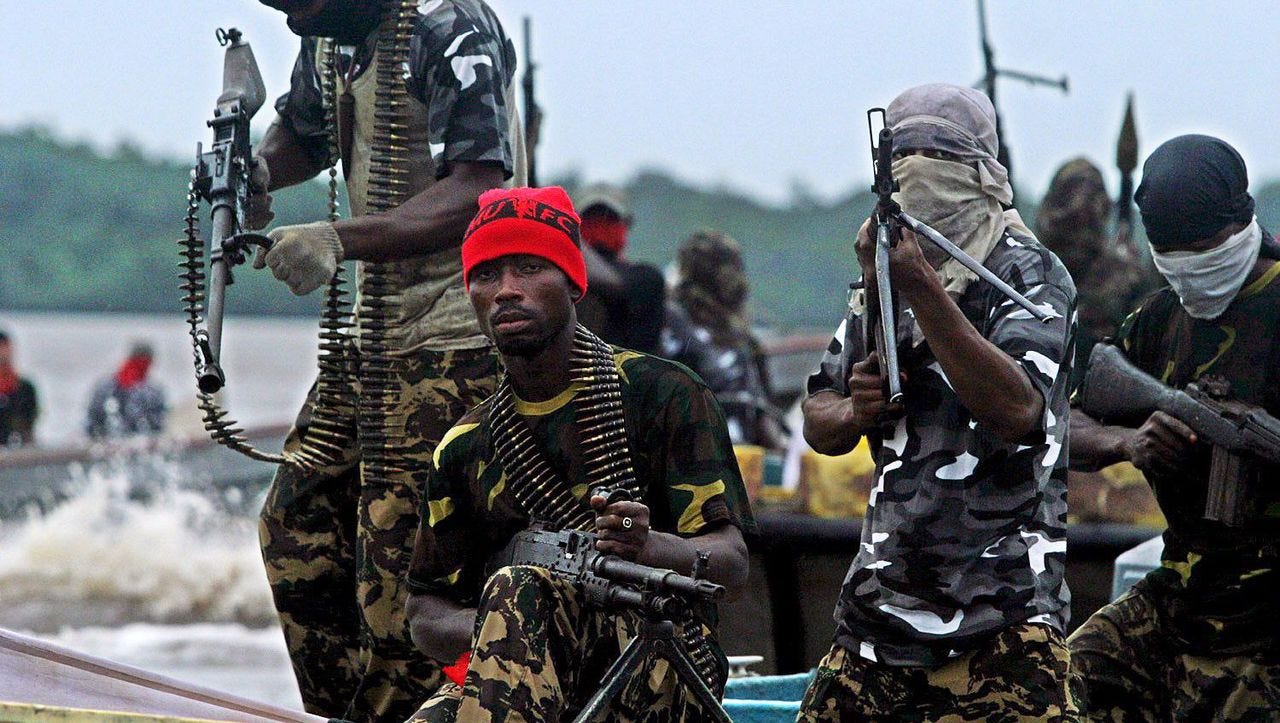
There has been a lot of speculation as to why the pirate gangs have apparently moved into other areas of criminal activity in 2022. In February 2023, the Director General of the Nigerian Maritime Administration and Safety Agency (NIMASA), Dr Bashir Jamoh, said:
“This achievement is a product of a well-structured multimodal policy which has been implemented over the years to fight piracy and other criminalities in Nigerian Waters. The Legal instrument called SPOMO Act signed into Law by President Buhari in 2019, the full implementation of the Deep Blue Project by NIMASA, expanded assets and capacity of the Nigerian Navy, enhanced cooperation between NIMASA and the Nigerian Navy, and the regional collaborative efforts under the umbrella of SHADE Gulf of Guinea midwifed by NIMASA, are all policies of the current administration and the benefits are gradually coming to fruition. We are focused on ultimately improving and reducing the cost of commercial shipping in Nigeria.
Notable maritime institutions like the International Maritime Bureau (IMB) and the International Maritime Organisation, IMO, have lauded the reduction in piracy in Nigeria following enhanced patrol and relevant Memorandum of Understanding (MoU) entered by NIMASA with other security agencies.”
Much has been made of the launch of the Deep Blue Project, including the introduction of maritime surveillance aircraft and their integration into a fully integrated maritime and coastal surveillance system. This development is a significant capability multiplier alongside improving performance and evolving capability of the Nigerian Navy.
It is also apparent that regional cooperation between states is improving, with an announcement on 10 May 2023 that the Nigerian Navy was establishing a maritime task force with other navies in the region, including those of Ghana, Benin, Togo, Liberia, Sierra Leone, Guinea, and Cote d’ivoire. The strategy includes the establishment of a Multinational Joint Task Force (see our piece on this news here.).
Additionally, international support to regional navies is increasing. This year has seen US participation in joint operations and training with local navies and the launch of a Japanese government initiative to cooperate with Nigerian security efforts to reduce piracy in the region. On 21-22 May 2023, President Buhari conducted a Presidential Fleet Review of 16 Nigerian naval vessels as well as guest vessels from Ghana, Brazil and Spain. The drive by the Nigerian Navy towards becoming a more collaborative force capable of operating in multi-national formations will aide further development of capability.
While all of the above is having a beneficial effect on the regional maritime security situation, it should be remembered that the pirate cartels were sponsored by powerful actors with strong political connections. It cannot be overlooked that in 2022 it was suggested in some circles that the pirate cartels had been shut down very quietly after a foreign power identified the big men behind them and threatened to name them publicly and internationally unless there was an immediate improvement. Whilst this cannot be conclusively verified, it can also not be discounted as a possibility.
Conclusions
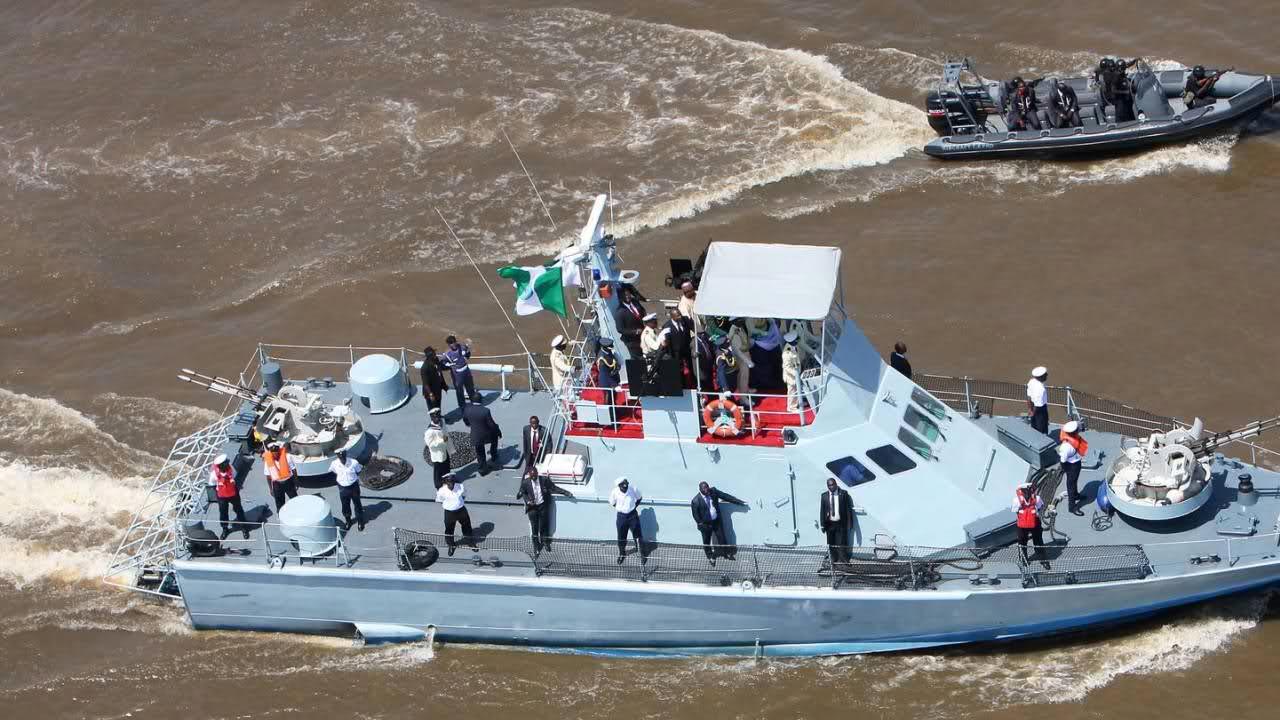
NIMASA and the Nigerian Navy are improving their collaborative efforts to secure the nations maritime economy. Greater cooperation with other nations will further improve the situation.
Piracy in the Gulf of Guinea remains well below 2020 levels, although we have seen a recent spike in high-impact attacks in international waters in the region.
Gangs are still operating in the region, but mostly outside Nigerian waters. Within Nigeria, the greatest threat currently is faced by travellers and commercial users of the country’s waterways and navigable rivers.
Whilst the likelihood of an event affecting a vessel may now much lower, in the event an incident does occur, the impact will be high, with attacks on personnel, kidnappings and injuries if the crew resist. Theft of cargo from product tankers remains a risk, normally resulting from short-term hijackings. Companies operating in the area should not take the recent headlines as an indication that there is no longer a threat.
As a locally owned and registered Nigerian company, Arete provide a wide range of maritime risk management services, including escort services within Nigerian EEZ as well as onboard consultants to assist with crew training and drills, voyage planning and advice on threat across the region and beyond.
Fully ISO accredited and with a 100% track record, we have over a decade of experience operating in West Africa specifically so please reach out to us to discuss your operational requirements in the region.
Annex A
Chronological List of Reported Maritime Crime And Piracy Events – 2023
- Sao Tome and Principe – Suspicious Approach – At approximately 02:00 hours local time, on Wednesday, 11 January 2023, an unnamed vessel was approached by two skiffs in approximate position 00:45N – 006:20E, approximately 27 NM northwest of Sao Tome Island. The master took evasive action and increased the vessel’s speed causing the skiffs to abandon their approach. The crew and vessel are reported safe. (Source – Multiple – B2)
- Ghana Inshore – Illegal Boarding – At approximately 23:50 hrs UTC on Wednesday, 25 January 2023, the Hong Kong flagged Product tanker, MT Seaclipper, IMO number 9570101, was illegally boarded while at anchor in an unspecified position in the Takoradi Anchorage. Duty officer onboard an anchored tanker spotted three unauthorised persons on the forecastle area. Alarm raised, crew mustered, and port control notified. Hearing the alarm and seeing the crew alertness the persons escaped without stealing anything. A patrol boat was dispatched to the location and investigated. (Source – multiple – B2)
- Cameroon Offshore – Hostile Approach – At approximately 03:45 hrs local time on Tuesday, 31 January 2023, two skiffs approached a Chinese fishing trawler operating off of Idenau in position 04:13N – 008:50E, approximately 31 NM from the Nigeria-Cameroon maritime border. Armed military guards onboard the trawler fired shots toward the two speed boats, which resulted in them aborting their approach and moving away from the area. The vessel, crew, and military guards have been reported as safe. (Source – Multiple – B2)
- Cameroon inshore – Armed Attack – At approximately 00:28 hrs local time on Thursday, 02 February 2023, an unnamed vessel was attacked off cap Debundscha, Cameroon. The vessel was attacked, but the attempted boarding was unsuccessful. It is suspected that the vessel had an armed, military protection team on board. Vessel and crew were reported as safe. (Source – B2)
- Cameroon Inshore – Armed Attack – At 0400 hrs local time on Friday, 17 February 2023, an unnamed oil vessel was attacked and fired on by suspected militants while anchored off the Idabato subdivision of the Bakassi Peninsula. The attackers boarded the vessel after shooting and killing two escorts. They then attempted to set the vessel ablaze. The attackers escaped before Cameroonian security forces arrived. (Source media – C3)
- Angola Inshore – Boarding Theft – At approximately 03:15 hrs local time on Wednesday, 01 March 2023, an unnamed container ship anchored in approximate position 06:05S – 012:14E, off Soyo, was boarded by armed men from a skiff. The boarders threatened a crew member with a knife before stealing items from inside a container. The local authorities were alerted, and the crew was reported as safe. (Source – C3)
- Ghana Inshore – Illegal Boarding – At approximately 02:36 hrs UTC on Thursday, 02 March 2023, the Danish flagged product tanker Nord Stingray, IMO number 94197835, was illegally boarded while at anchor in position 04:53.70N 001:41.20W, in the Takoradi Anchorage. Duty crew onboard an anchored tanker noticed an unauthorised person near the forecastle and immediately raised the alarm. Upon hearing the alarm, the individual escaped with stolen ship’s stores. The incident was reported to Takoradi port control, and a patrol boat was sent to investigate. (Source – Multiple – B2)
- Congo Republic Offshore – Maritime Kidnap – At approximately 21:38hrs UTC on Saturday, 25 March 2023, more than ten pirates armed with guns attacked and boarded the Liberian flagged product tanker MT Monjasa reformer, IMO number 9255878, while underway in position 05:03.00S 009: 35.00E, approximately 135nm WSW of Pointe Noire. The alarm was raised, and all crew members mustered in the citadel. On being notified of the incident, the IMB Piracy Reporting Centre immediately informed the regional authorities in the Gulf of Guinea and the French authorities and requested their assistance. The pirates managed to break into the citadel, took hostage all crew members, and took control of the tanker. They hijacked the tanker and sailed to another location. All communication with the tanker was lost as the pirates had destroyed the navigational and communication equipment. The IMB broadcast a missing tanker message to all ships at sea. On 30 March 2023, the French patrol boat Premier Maitre L’Her intercepted the tanker Off Bonny, Nigeria. A team boarded the vessel and treated three crew members for minor injuries. Part of the cargo was stolen and six crew were reported kidnapped. The tanker was then escorted to the port of Lome, Togo. On 08 May 2023, the Owners confirmed that the six kidnapped crew were released safely. (Source – Multiple – B2)
- Angola Inshore – Boarding Theft – At approximately 0230 hrs UTC on Sunday, 26 March 2023, The Maltese flagged Tug Komodo, IMO number 9328273, was boarded by robbers who had approached the vessel in a canoe while the vessel was at anchor in position 08:44.61S 013:17.36E in the Luanda Anchorage. Alert crew noticed the robbers and informed the OOW who raised the alarm and crew mustered resulting in the robbers escaping with stolen ship’s properties (including empty plastic food trays, an air hose which was coiled on top of the portside tugger winch, and the main deck c/w electrical extension wire in used daily for deck maintenance. Port Authorities informed. (Source – Multiple – B2)
- Angola Inshore – Boarding Theft – At approximately 0318 hrs local time, on Wednesday, 29 March, 2023, an unnamed container vessel was boarded while steaming in approximate position 06:08S – 012:15E off Soyo Anchorage. The boarders threatened a duty crew member with a knife, then made their escape with items from one of the containers. Local authorities were informed of the incident and the crew were reported as safe. (Source – Multiple – B2)
- Ivory Coast Inshore – Attempted Boarding – At approximately 22:00 hrs UTC on Friday, 31 March 2023, the Singapore flagged Container Ship, MV Maersk Vigo, IMO number 9401697, was approached and a boarding attempted while the vessel was anchored in position 04:44.47N 006:37.13W in the Port of San Pedro. Two unauthorised persons attempted to board the berthed ship by crawling under the razor wire while a third was assisting from their wooden canoe to move the razor wire. Alert crew detected the persons and raised the alarm. Hearing the alarm and seeing the crew alertness, the persons escaped without stealing anything. At the time of event the pilot was still onboard. (Source – Multiple – B2)
- Ivory Coast Offshore – Maritime Hijack – At approximately 13:50hrs UTC on Monday, 10 April 2023, the Singapore flagged product tanker MT Success 9, IMO number 9258131, was attacked and boarded by twelve pirates armed with firearms while underway in position 00:06.90N 004:34.00W, approximately 307 nM SSW of Abidjan. The pirates hijacked and self-navigated the tanker. On being notified of the incident, the IMB Piracy Reporting Centre immediately informed the regional and French authorities in the Gulf of Guinea. A missing tanker message was broadcast to all ships to lookout for the tanker. Position updates received from all sources were communicated with the relevant authorities for their coordination. On 15 April, a French naval asset located the tanker and the tanker escorted to a safe port by an Ivory Coast Guard patrol boat. The pirates had destroyed the navigational equipment, handcuffed all 21 members of the crew with cable ties and stolen part of the cargo before escaping. All crew reported safe. (Source – Multiple – B2)
- Angola Inshore Attempted Boarding – at approximately 02:30 hrs local time, on Wednesday, 19 April 2023, an unnamed refrigerated cargo ship was boarded while at anchor in approximate position 08:44S – 013:18E in the Luanda Anchorage. The duty watchman noticed an unauthorized person climb up the anchor chain and through the hawse pipe while another individual waited below on a small boat. The watchman raised the alarm and mustered the crew. Upon seeing the alerted crew, the perpetrator jumped into the water and escaped in the small boat. The master confirmed that all crew were safe and that nothing was reported stolen. (Source – Single security source – C3)
- Angola Inshore – Boarding Theft – At approximately 02:30 hrs UTC on Tuesday, 25 April 2023, the Panama flagged crew change vessel, MV Bourbon Shamal, IMO number 9656931, was boarded while anchored in position 08:47.06S 013:14.85S in the Luanda Inner Anchorage. Alert crew noticed unauthorised persons onboard attempting to steal an outboard engine of the FRC. The alarm was raised and ship’s horn sounded resulting in the robbers escaping. Authorities informed and the police boarded the vessel for investigation. (Source – Multiple – B2)
- Lagos Inshore – Illegal Boarding – At approximately 05:00 hrs UTC on Tuesday, 28 April 2023, the Liberia flagged general cargo ship MSC Wave F, IMO number 9232462, was boarded by approximately 8 persons armed with knives while berthed in position 06:25.76N 003:20.53E in the Tin Can Island Terminal. Alert crew on rounds spotted the persons resulting in the persons escaping empty handed in their boat. (Source – Multiple – B2)
16. Gabon Inshore – Maritime Kidnapping – At approximately 02:00 hrs local time on Tuesday, 02 May 2023, Marshall Islands-flagged bulk carrier MV Grebe Bulker, IMO number 9441312, was boarded while at anchor in approximate position 00:16N – 009:29E in the Owendo Inner Anchorage in Libreville. Three crew members were kidnapped. The remaining crew members and vessel were reported safe. The vessel notified the local authorities of the kidnapping. (Source – Multiple – B2)

